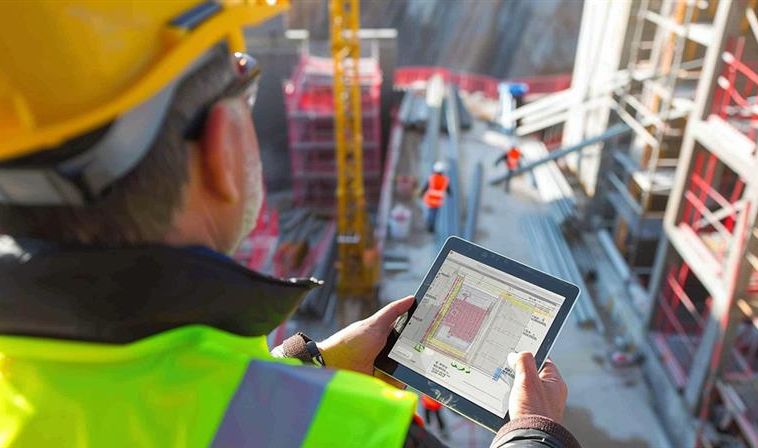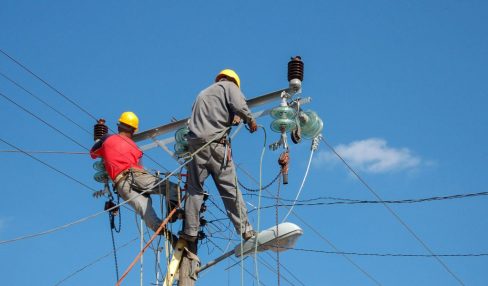5 Reasons Why Construction Firms Are Turning to GPS Fleet Tracking
6 Mins Read
Published on: 11 June 2025
Last Updated on: 14 June 2025

- What Is GPS Fleet Tracking?
- Why More Construction Companies Are Using GPS Fleet Tracking
- 1. Accurate Real-Time Fleet Location
- 2. Enhanced Equipment and Vehicle Utilization
- 3. Improved Theft Prevention and Recovery
- 4. Streamlined Maintenance and Compliance
- 5. Increased Project Efficiency and Cost Control
- How To Implement Fleet Tracking For Construction Companies?
- 1. Identify Tracking Goals
- 2. Choose the Right GPS Fleet Tracking Solution
- 3. Install GPS Tracking Devices
- 4. Set Up Geofences and Alerts
- 5. Train Your Team
- 6. Monitor Performance and Optimize Usage
- 7. Review and Scale As Needed
- GPS Fleet Tracking Making Operations Easy
Technology advancement is bringing evolution in every sector. And, the construction industry is also evolving. It is slowly adopting GPS tracking systems to improve its operational efficiency.
Moreover, with the GPS tracking, you can get the precise location of your construction equipment that is scattered around different work sites. So, you can use the one that you have.
Additionally, when you use GPS tracking for construction equipment, you can accurately mark the place where the machines are. This increases the visibility of your asset and can help with your construction business.
Also, with this visibility, you can manage the operations at the construction sites. From allocating the right resources to the right sites to optimizing operations, it can help you avoid misusing the resources.
So, if you want to know why GPS tracking is becoming more and more common in the construction industry, we have got you covered.
In this article, we will discuss about the GPS Fleet tracking and how it is beneficial for construction businesses. Stay tuned!
What Is GPS Fleet Tracking?
GPS fleet tracking is a new gen tracking system that helps monitor the precise location of the construction equipment. It uses the satellite signals to show you the precise location details.
So, you get to know the exact location of your equipment and use it efficiently to improve your operations. Moreover, you can install the GPS tracker on your equipment and locate it using your phone app.
It will give you the exact time and location of your machines. And, with the help of the data, you can decide which machines to use for your work.
Aldo, based on the location, you can decide what can be brought to the work site without wasting too many resources. This way, the resources are managed properly.
So, overall, the GPS tracking system helps you to manage your construction projects, resources, and equipment efficiently.
Why More Construction Companies Are Using GPS Fleet Tracking

1. Accurate Real-Time Fleet Location
Knowing exactly where each piece of equipment and vehicle is located can transform how construction teams manage daily operations. GPS fleet tracking gives site managers a clear, live view of their entire fleet, no matter how spread out it is.
When project schedules are tight, having live location updates removes the need for phone calls and guesswork. One quick glance at the tracking dashboard shows whether the right machines are at the right site and ready to work.
If equipment is moved without authorization or goes missing, movement alerts trigger instantly. Route history is equally valuable, letting managers review where fleet units have traveled and identify potential inefficiencies.
2. Enhanced Equipment and Vehicle Utilization
Many construction companies unknowingly leave equipment sitting idle. And, this can impact the overall efficiency of your firm. So, it is important to utilize every equipment properly.
Moreover, you can use the GPS fleet tracking system to get a visual picture of where your equipment is sitting idle. And then use them efficiently.
Additionally, this information about the location of your machines and firm equipment can help you to improve productivity. As you use the idle machines, you increase the productivity of your business.
By tracking engine hours and usage patterns, maintenance schedules can be perfectly aligned with actual wear and tear. Keeping machines in service longer while cutting down on surprise breakdowns becomes far easier with accurate utilization data.
3. Improved Theft Prevention and Recovery
Construction equipment theft leads to project delays and serious financial losses. GPS fleet tracking is one of the strongest tools for preventing this issue.
Geofence alerts can be set up so that if a vehicle or machine leaves a defined job site after hours, the system immediately notifies the manager. With instant visibility, teams can react faster to stop theft in progress or assist police with recovery.
Even if theft does occur, GPS tracking provides a digital breadcrumb trail to pinpoint the equipment’s exact location. This increases recovery rates dramatically and ensures the fleet is protected 24/7, not just during work hours.
4. Streamlined Maintenance and Compliance
Fleet maintenance in construction has traditionally relied on manual logs and fixed intervals. GPS fleet tracking changes this by providing live data on engine hours, mileage, and operating conditions.
So, you get all the manual work done by the automation. Additionally, the tracking system will give you alerts for the location of the equipment. So, you can check on them through your phone.
Moreover, this can help in reducing the overexpenditure on resources and equipment maintenance when it was not in use. So, you can save a lot of operational costs.
Furthermore, you already know how important it is to comply with the safety and emissions standards for construction companies. So, with the GPS tracking, you get records for showing the audit team when required.
5. Increased Project Efficiency and Cost Control
When managing multiple crews and job sites, fleet movement directly impacts project timelines. GPS fleet tracking helps managers coordinate vehicle and equipment delivery to avoid delays and downtime.
Furthermore, fuel represents one of the biggest variable costs in any fleet operation. With GPS-based fuel tracking, managers can identify inefficiencies, such as excessive idling or poor route planning, and take corrective action to save money.
Finally, billing and reporting become more accurate with GPS data. Clients and stakeholders can trust the numbers, as equipment usage and job site visits are fully documented with time-stamped location records.
How To Implement Fleet Tracking For Construction Companies?
Implementing GPS fleet tracking improves construction operations. Each step in the process must be executed clearly to achieve full value.
1. Identify Tracking Goals
Define what your company needs from fleet tracking. Common goals include improving utilization, reducing theft, cutting fuel costs, and maintaining project schedules.
Additionally, clear goals help you select the right tracking features. Align the technology with specific business needs to maximize results.
2. Choose the Right GPS Fleet Tracking Solution
Select a GPS tracking provider with features designed for construction. Essential features include real-time tracking, geofencing, maintenance alerts, fuel tracking, and compliance reporting.
Moreover, verify whether you need hardware for vehicles, heavy equipment, or both. The solution should integrate with your existing management software.
3. Install GPS Tracking Devices
Install GPS devices on every vehicle and piece of equipment you plan to track. Professional installation ensures accuracy and consistent data.
Additionally, test each device after installation. Confirm it is transmitting real-time location and usage data.
4. Set Up Geofences and Alerts
Use the system to create geofences around each job site. These digital boundaries trigger alerts if equipment moves outside the designated area.
Moreover, configure alerts for unauthorized movement, after-hours use, maintenance schedules, and other critical events. Alerts allow faster response to potential problems.
5. Train Your Team
Provide training for managers and operators on using the tracking platform. Cover dashboards, alert management, and report generation.
Additionally, a well-trained team adopts the system more effectively. Ongoing training keeps users updated as features evolve.
6. Monitor Performance and Optimize Usage
Use tracking data to monitor fleet performance. Focus on idle time, fuel consumption, maintenance needs, and route efficiency.
Moreover, adjust fleet usage based on these insights. Optimize routes and maintenance schedules to improve operations.
7. Review and Scale As Needed
Periodically review fleet tracking requirements. Add devices or features when your fleet grows or project needs change.
Choose a scalable GPS tracking system. Regular reviews ensure the system continues to meet operational goals.
GPS Fleet Tracking Making Operations Easy
GPS fleet tracking helps construction companies improve efficiency, reduce costs, and protect valuable equipment. When implemented correctly, it gives managers full control over fleet operations across multiple job sites.
Companies that adopt GPS tracking can manage projects more effectively and stay competitive in the industry. A clear implementation process ensures the technology delivers strong long-term value.



















Comments Are Closed For This Article